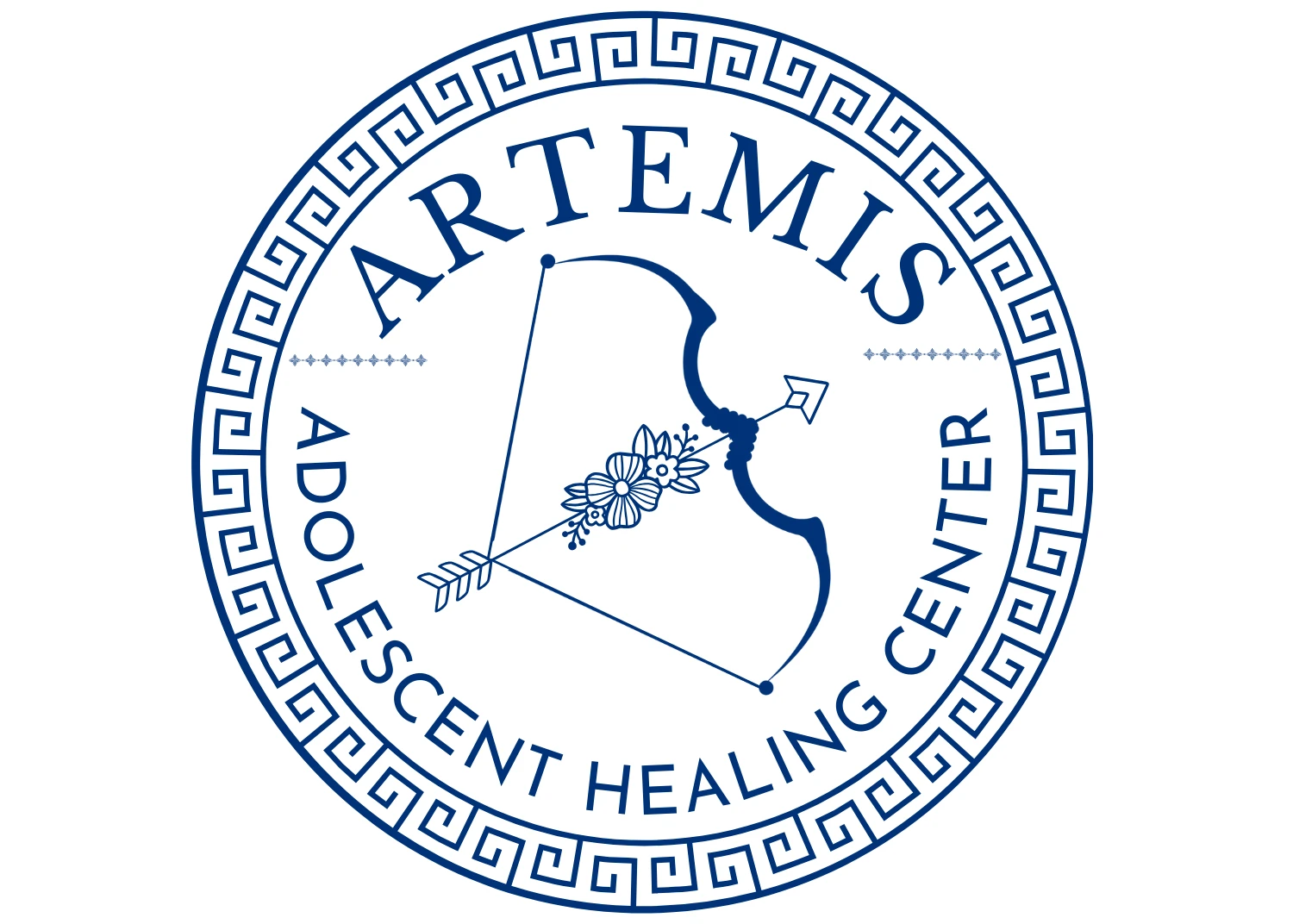Know the Symptoms and Treatment Options for Teens with BPD
Proper teen borderline personality disorder treatment is the best way to address this challenging situation and set the stage for a bright future. If a teen in your life is suffering from borderline personality disorder, getting help from a mental health professional can help deal with BPD symptoms effectively.
Mental health issues are sadly common among people of all ages, including teenagers. Dealing with all mental health conditions, including borderline personality disorder, is something that should be handled as soon as possible. Rarely will these issues improve on their own.
To get the right help for a teen you love, call Artemis Adolescent Healing Center today. A member of our team will be happy to speak with you about the situation and explain the treatment options we have available.
Get Confidential Trauma and PTSD Assessment
Understanding Borderline Personality Disorder in Teens
Borderline personality disorder is a complex mental health condition. This is a condition that is more often diagnosed in adulthood, but it can begin in adolescence. As more and more research is done into this condition, it is being discovered that symptoms often begin earlier in life than previously believed. Recognizing warning signs early, which we will discuss below, can help lead to better outcomes in the end.
One of the challenges with diagnosing BPD in teens is that this is an emotional time of life for everyone. So, it can be hard to separate the regular, intense emotions that come with the teenage years from something more serious and concerning.
At what point do the emotional regulation issues and other symptoms demand talk therapy and other types of treatment?
That can be hard for family members to determine, but the best course of action is usually to err on the side of caution. If symptoms are persistent and seem to be getting worse, reaching out for help before things spiral out of control is a smart decision.
Watch for These BPD Symptoms

Knowing exactly what to watch for in a teen is the first line of defense. A young person can develop BPD symptoms quickly and seemingly out of nowhere, but if you know what to look for, you’ll be able to step in and seek out a professional treatment program.
Unstable Self Image
Many teens struggle to define themselves during this stage of life. That struggle is even more common for young people dealing with BPD. They might exhibit signs of a self-image that shifts dramatically from day to day. These shifts will typically be extreme and will be easily noticed by those around them.
Mood Instability
Another way these swings are demonstrated is in the mood the teen demonstrates in their daily life. Not only can mood swing from day to day, but also from hour to hour or even moment to moment. You may feel like there is no way to predict what kind of mood your teen will be in at a given time.
Adolescent BPD is often marked by these wild swings that feature anger, depression, or anxiety, among other symptoms.
Fear of Abandonment
As is the case with some other mental health disorders, BPD can cause young people to fear abandonment. This fear could be rooted in something realistic, like family struggles, or it could be completely perceived.
Whatever the case may be, it’s important to treat BPD effectively to help the teen calm down and not worry actively about being left behind by loved ones.
Impulsive Behavior
Many different impulsive behaviors are associated with borderline personality disorder. Substance use disorder is a big one. So too are dangerous activities like reckless driving, unsafe sex, binge eating, and more.
All of these can be used to escape the emotional pain that the teen is experiencing at the time. Of course, other mental health issues can manifest in similar ways, so this one symptom alone does not necessarily point to BPD.
Unstable Relationships
Stable interpersonal relationships are foundational for a healthy life as an adolescent. It’s common for young people with BPD to idolize someone one day, only to devalue or despise them the next.
As they continue to develop BPD symptoms, you might notice that this pattern of rough and inconsistent relationships only gets worse. Transitioning successfully from a teen to a young adult is made much harder when there aren’t any stable relationships to lean on for support.
What Causes Borderline Personality Disorder?

For many families, it will feel like borderline personality disorder comes out of nowhere. A teen who seemed to be doing well may suddenly start to struggle to manage emotions, or may engage in self harming behaviors. Understanding the risk factors for this condition can help you make sense of the situation you are now facing.
Genetics
Teens who have a history of borderline personality disorder in their family may be more likely to develop the condition themselves. This could extend to other personality disorders that have similar symptoms. It’s always important to seek treatment for mental health conditions, and that is certainly true when it is known that borderline symptoms run in the family.
Brain Structure
There have been studies performed to investigate the brain structures of individuals with BPD. It has been seen that there are fundamental differences in the parts of the brain that are responsible for emotional regulation, impulse control, and aggression. So, in this way, a teen may be predisposed to BPD symptoms as a result of nothing more than biology.
Environmental Factors
Certain environmental factors or experiences will also play into the borderline traits or specific symptoms that are seen in a teen. These can include childhood abuse, neglect, exposure to unstable relationships, and other factors. The strong emotions that can be tied to these factors may make it more likely for a young person to wind up with this condition.
Get Accredited Treatment Programs at Artemis
How Professionals Diagnose BPD in Teens
As mentioned above, it’s important for a mental health professional to formally diagnose your teen with BPD. This matter is too serious to just assume you know what the problem is. The American Psychiatric Association has established clear guidelines for what is to be diagnosed as borderline personality disorder, and not all cases will meet the diagnostic criteria.
As a starting point, a teen will need to have demonstrated the symptoms of borderline personality disorder for an extended period. Usually, it needs to be at least a year of persistent issues. This duration helps to separate BPD from some of the other anxiety disorders and mental health conditions that may have overlapping symptoms.
The BPD Diagnosis Process for Adolescents
A number of steps will be taken during the diagnostic process to get it right. Clinical interviews with both the teen and their caregivers are a starting point. It’s also likely that psychological questionnaires will be used, along with a detailed review of medical, educational, and family histories. The clinician will also want to know about any other risk factors that might be in play for the teen.
It has often been the case that clinicians were hesitant to assign such a serious diagnosis to an adolescent. That is changing, however.
Given the fact that early diagnosis and treatment can lead to better outcomes over the long run, more and more professionals are trusting their judgment and assigning this diagnosis when it is appropriate.
Many Treatment Options Are Available

We understand that having your child diagnosed with BPD is a difficult time. You have already been through a lot by this point, and receiving a diagnosis like this can feel like a life sentence.
But it doesn’t have to be that way. Effective treatments are available and progress can be made on depressive symptoms and the other realities of living with this condition. Here are just some of the many teen borderline personality disorder treatment options that may be explored to help your teen overcome this challenge.
Dialectical Behavior Therapy
This treatment is considered the gold standard when dealing with BPD in teens. It is delivered in a variety of formats, including through family therapy, group therapy, and individual sessions. When used properly and consistently, DBT can help to confront problems like self destructive behavior, eating disorders, suicidal behavior, and more.
Dialectical Behavior Therapy targets four core skills that teens in this position need to develop. The first is emotional regulation, as struggling with intense feelings is a calling card of this condition. There will also be sessions that work on building distress tolerance, interpersonal effectiveness, and mindfulness.
Plenty of hard work and challenging sessions are waiting for your teen as they work through this mental illness. Gradually, however, negative thoughts and negative emotions can slowly be replaced by more positive, productive thoughts. Early treatment makes things easier than waiting until the condition develops further, so seek out help as soon as possible.
Cognitive Behavioral Therapy
In the treatment of mental health conditions, Cognitive Behavioral Therapy is an extremely popular and effective option. It isn’t necessarily as targeted toward borderline personality disorder as DBT, but it is still helpful. It’s particularly likely that your teen’s treatment will include CBT when they are battling a co-occurring condition like depression or anxiety.
The goal of CBT sessions is to identify and then change negative thought patterns. Those thought patterns may be leading to destructive behaviors. By replacing the patterns with more positive lines of thinking, the symptoms of borderline personality disorder may be reduced, and improvements can be enjoyed.
Medication Management
There is no specific medication that will cure borderline personality disorder. There are, however, some medications that can be used along with other treatments to manage the symptoms your teen may be experiencing.
Antidepressants, for example, may be prescribed to deal with the symptoms of depression or anxiety. These drugs are used for many other mental health conditions outside of BPD, but can be appropriate as part of a bigger treatment plan.
Your healthcare provider may also determine that using mood stabilizing drugs, or antipsychotics, could be helpful. Again, this will all come down to the symptoms that are being experienced by the teen. It won’t be a matter of using medications like these alone to deal with BPD, but better results could be within reach thanks to a combination of medication and therapy.
What is the Cost of Teen BPD Treatment?

There are always financial concerns related to seeking treatment for borderline personality disorder. For as much as you want to get your teen the help they need, you also have to consider the financial realities of your situation.
So, with that in mind, how much is this treatment going to cost? Unfortunately, there just isn’t any way to attach a specific price to something that has so many variables involved. The cost of treatment depends entirely on the treatments that are recommended and the medications that are used. Naturally, more severe cases that require more intervention will be costlier to treat.
The good news here is that insurance can help you pay for the treatment required to get your teen the right treatments for their condition. When you contact Artemis, we will be happy to check the benefits available through your insurance policy to explain the options and what your out-of-pocket costs will look like.
We don’t ever want to see financial concerns get in the way of treating a young person for borderline personality disorder. Even if you aren’t sure how you will pay for the treatment right now, reach out anyway to talk about the situation and we can work together to find a solution.
Up To 100% of Rehab Costs Covered By Insurance
Turn to Artemis for Help and Effective BPD Treatment Options
Early intervention is critical for all kinds of mental health disorders. Whether it’s a personality disorder or any other type of mental health crisis, getting appropriate treatment will increase the likelihood of a successful outcome.
Don’t let another day pass without exploring the options for treatment. At Artemis Adolescent Healing Center, our professional team is experienced with these kinds of challenging cases and will deliver the customized, tailored care that your teen deserves. Get in touch today and let’s get started.






